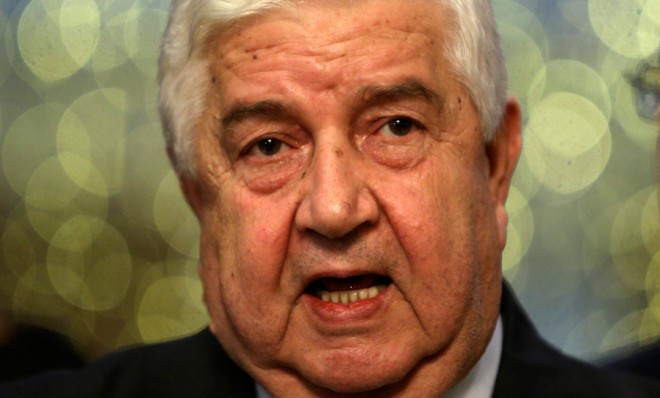Syria accepts Russia's chemical weapons deal: Now what?
Bashar al-Assad's foreign minister says Syria will relinquish control of its massive chemical weapons arsenal. But the devil may be in the details.

A free daily email with the biggest news stories of the day – and the best features from TheWeek.com
You are now subscribed
Your newsletter sign-up was successful
In a surprising case of accidental diplomacy on Monday, Secretary of State John Kerry made the off-the-cuff suggestion that, "Sure, [Assad] could turn over every single bit of his chemical weapons to the international community in the next week — turn it over, all of it, without delay and allow the full and total accounting."
He qualified that with, "But he isn't about to do it, and it can't be done."
Russia leaped on this opportunity, quickly offering a plan for Syria to puts its weapons under international control, where they would be destroyed, and then join the Organization for the Prohibition of Chemical Weapons. That would be a big step, considering Syria is believed to have the most advanced chemical weapons program in the developing world — an arsenal that allegedly was used for a sarin gas attack that reportedly killed more than 1,000 people near Damascus last month.
The Week
Escape your echo chamber. Get the facts behind the news, plus analysis from multiple perspectives.

Sign up for The Week's Free Newsletters
From our morning news briefing to a weekly Good News Newsletter, get the best of The Week delivered directly to your inbox.
From our morning news briefing to a weekly Good News Newsletter, get the best of The Week delivered directly to your inbox.
Then, early this morning, came this news:
So... what happens now?
First, Syria and Russia would have to create an actual detailed plan, something Russian Foreign Minister Sergei Lavrov promises will happen soon. Then, Lavrov would present it to U.N. Secretary General Ban Ki-moon and the Organization for the Prohibition of Chemical Weapons. The idea of a Russian-mediated plan has been endorsed by the Arab League and China, both of whom have opposed the idea of military action against Syria. France, which has supported U.S. military intervention, said it would draw up a U.N. Security Council resolution backing a plan for Syria to give up its chemical weapons.
Key to any of this is whether the deal would satisfy the Obama administration, which has been pushing hard over the last week to convince reluctant lawmakers in Congress to back a military strike against the regime of Bashar al-Assad.
A free daily email with the biggest news stories of the day – and the best features from TheWeek.com
For now, White House Press Secretary Jay Carney seems cautiously optimistic.
"We see this as potentially a positive development," Carney said on MSNBC's Morning Joe. "And we see it as a clear result of the pressure that has been put on Syria by the fact that the president has been moving forward and taking his proposal that we engage in limited strikes against Syria in response to Syria's use of chemical weapons against a civilian population."
Obama will still give a speech tonight in hopes of rallying support for a military strike against Syria — something the president said could "absolutely" be put on hold if Syria agreed to hand over its chemical weapons. He is also planning to meet with members of Congress — many of whom have opposed the president's plan to launch an attack on Syria — on Tuesday to discuss the new developments.
Of course, as The Week's Peter Weber noted this morning, confiscating and destroying Syria's chemical weapons arsenal is a lot harder than it sounds. And not everyone trusts Assad to follow through.
Yesterday, Jen Psaki, a spokeswoman at the State Department, called Assad a "brutal dictator with a history of playing fast and loose with the facts" who could not be "trusted to turn over chemical weapons, otherwise he would have done so long ago."
Avigdor Lieberman, chair of the Israeli Knesset Foreign Affairs and Defense Committee, told Israel Radio that Syria was trying to "buy time" with no intention of giving up its chemical weapons.
Rebels in Syria were also skeptical.
"I say to decision-makers that we know this regime, we have experienced it, and we warn you against falling into its trap of deceit and dishonesty," Gen. Salim Idris, leader of the Western-supported Free Syrian Army, told Al Jazeera.
Keith Wagstaff is a staff writer at TheWeek.com covering politics and current events. He has previously written for such publications as TIME, Details, VICE, and the Village Voice.